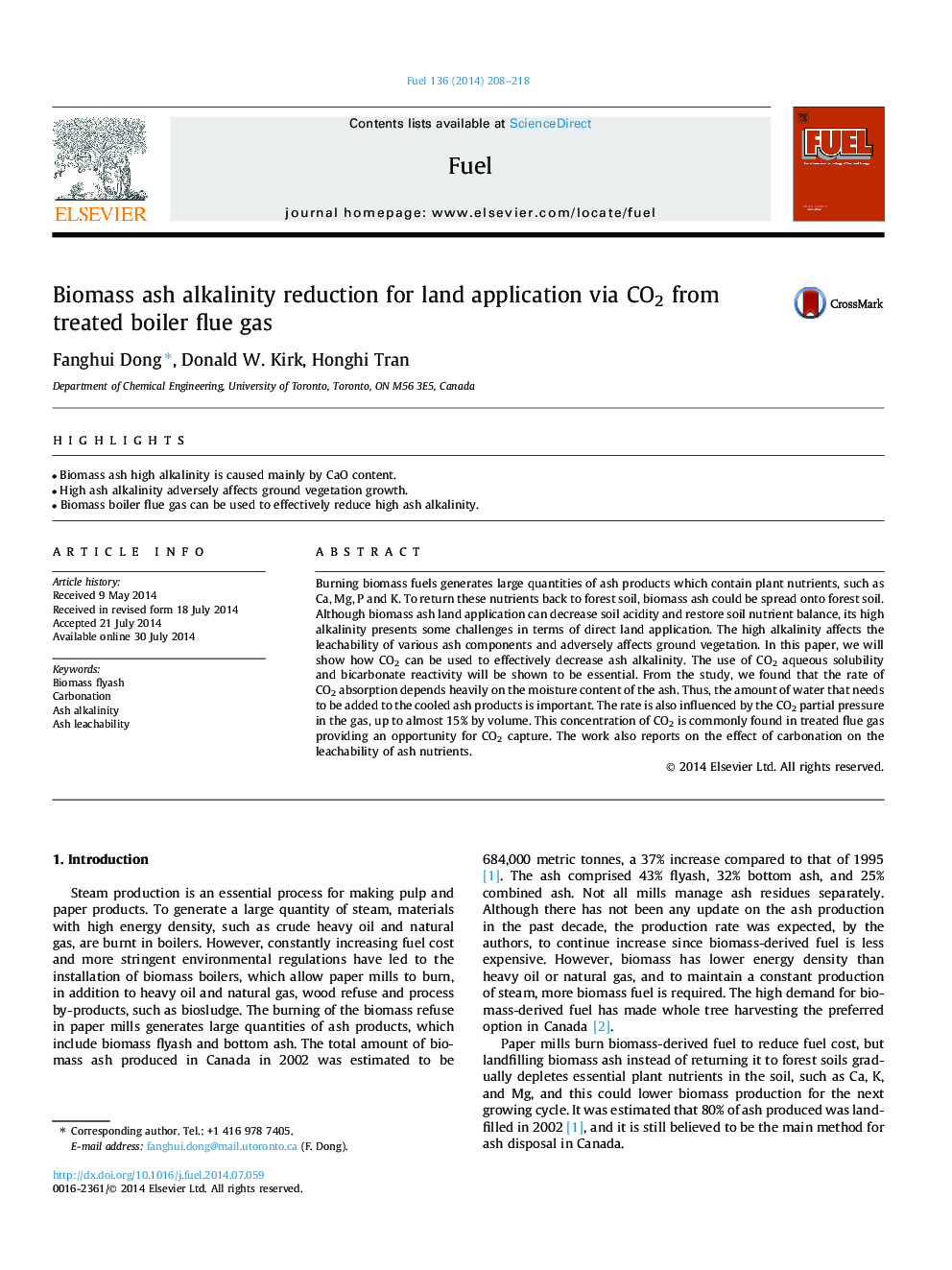| کد مقاله | کد نشریه | سال انتشار | مقاله انگلیسی | نسخه تمام متن |
|---|---|---|---|---|
| 206092 | 461138 | 2014 | 11 صفحه PDF | دانلود رایگان |

• Biomass ash high alkalinity is caused mainly by CaO content.
• High ash alkalinity adversely affects ground vegetation growth.
• Biomass boiler flue gas can be used to effectively reduce high ash alkalinity.
Burning biomass fuels generates large quantities of ash products which contain plant nutrients, such as Ca, Mg, P and K. To return these nutrients back to forest soil, biomass ash could be spread onto forest soil. Although biomass ash land application can decrease soil acidity and restore soil nutrient balance, its high alkalinity presents some challenges in terms of direct land application. The high alkalinity affects the leachability of various ash components and adversely affects ground vegetation. In this paper, we will show how CO2 can be used to effectively decrease ash alkalinity. The use of CO2 aqueous solubility and bicarbonate reactivity will be shown to be essential. From the study, we found that the rate of CO2 absorption depends heavily on the moisture content of the ash. Thus, the amount of water that needs to be added to the cooled ash products is important. The rate is also influenced by the CO2 partial pressure in the gas, up to almost 15% by volume. This concentration of CO2 is commonly found in treated flue gas providing an opportunity for CO2 capture. The work also reports on the effect of carbonation on the leachability of ash nutrients.
Journal: Fuel - Volume 136, 15 November 2014, Pages 208–218